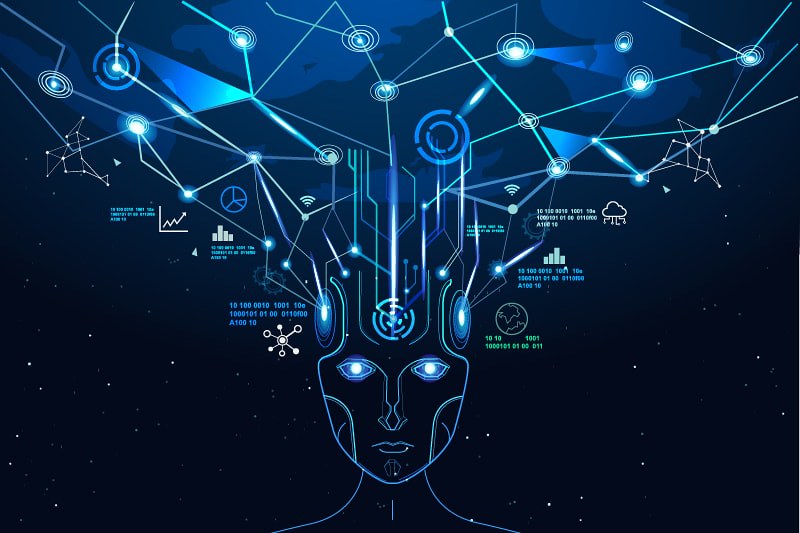

Artificial intelligence (AI) is revolutionizing various industries, and the education sector is no exception. AI has the potential to transform the way we teach and learn, offering personalized experiences and innovative tools. In this article, we will delve into the impact of AI in education, exploring the perspectives of both teachers and students.
Understanding Artificial Intelligence in Education
Definition of artificial intelligence
Artificial intelligence refers to the simulation of human intelligence in machines that are programmed to think and learn like humans. Through machine learning algorithms, AI systems are designed to analyze data, recognize patterns, and make decisions, all without explicit programming.
Applications of AI in education
AI has numerous applications in the field of education. It can be used to develop intelligent tutoring systems that provide step-by-step guidance and personalized feedback to students. Additionally, AI-powered chatbots like ChatGPT can assist students in answering their queries and solving problems.
Benefits and Challenges of AI in Education
Advantages of using AI in education
The use of AI in education offers several benefits. Firstly, it enables personalized learning experiences by adapting to the unique needs and preferences of each student. AI can analyze students’ progress and performance data to provide tailored recommendations and resources. This personalized approach can greatly enhance student learning outcomes.
In addition, AI can automate administrative tasks such as grading, freeing up valuable time for teachers to focus on classroom instruction and student engagement. AI systems can efficiently assess and provide immediate feedback on assignments and tests, allowing students to quickly identify and address areas for improvement.
Limitations and concerns of AI in education
While the potential of AI in education is promising, it is essential to address the limitations and concerns associated with its use. One major challenge is ensuring data privacy and security. As AI systems collect and analyze sensitive student information, it is crucial to have strong safeguards in place to protect their privacy.
Another concern is the potential for bias in AI models. If AI algorithms are trained on biased data, they may perpetuate existing educational inequities and reinforce stereotypes. Therefore, it is important to regularly evaluate and refine AI models used in education to mitigate any biases.
The use of AI amongst students, like having AI generate their essays or supplying instant answers for their assignments, is a significant worry. We must ensure that our young individuals do not grow complacent or less intellectually capable compared to previous student generations, thanks to the convenience of relying completely on artificial intelligence for their tasks. It is crucial to strike a balance where students make effective use of AI while still actively learning and independently completing their work.

Perspectives of Teachers on AI in Education
Educators’ experiences with AI tools
Many teachers have already started incorporating AI tools in their classrooms and have reported positive experiences. AI tools have helped streamline administrative tasks, such as generating lesson plans and organizing student data. AI tools, such as automated planning software and student information systems, have indeed played a significant role in streamlining administrative tasks in education. Some ways in which AI tools have helped in this regard include:
1. Lesson Plan Generation: AI-powered tools can analyze curriculum materials, learning objectives, and student performance data to automatically generate personalized lesson plans. These plans take into account the individual needs and progress of students, saving time for teachers and ensuring tailored instruction.
2. Student Data Organization: AI-based student information systems can efficiently manage and organize vast amounts of student data, including attendance records, grades, assessments, and demographic information. This enables administrators to retrieve and analyze data in real-time, aiding in decision-making processes and enabling more effective interventions.
3. Automated Assessments: AI algorithms can assist in automating the grading process for multiple-choice and fill-in-the-blank assessments. By leveraging natural language processing and machine learning techniques, these tools can accurately assess and provide immediate feedback on student work, reducing the grading burden on teachers.
4. Virtual Assistants and Chatbots: AI-powered virtual assistants and chatbots can be utilized to provide students, teachers, and parents with instant support and information. These tools can answer routine questions, provide academic resources, or guide users through administrative procedures, relieving administrative staff of repetitive tasks.
5. Data Analysis and Reporting: AI tools can analyze student data to identify patterns, trends, and student performance indicators. This analysis can help administrators make data-driven decisions regarding curriculum improvements, resource allocation, and student support services.
By automating these administrative tasks, AI tools free up educators’ time and enable them to focus more on instruction and individual student needs. However, it is important to note that while AI can assist in these tasks, it should complement and support human decision-making rather than replace it. This has allowed teachers to allocate more time for individualized instruction and student support.
Teacher opinions on the impact of AI in the classroom
Teachers recognize the potential of AI to enhance teaching and learning. They believe that AI can facilitate a more interactive and engaging learning environment, where students can access personalized resources and receive instant feedback. Some educators also see AI as a valuable tool for inclusion, as it can provide additional support for students with disabilities or different learning styles.

Perspectives of Students on AI in Education
Students’ perception of AI in education
Students have varying perceptions of AI in education. Some view it as a helpful tool that enhances their learning experience, while others may have concerns or reservations. Overall, students are curious about AI and its potential applications in their education.
How students feel about AI tools
Many students find AI tools to be beneficial and engaging. The interactive nature of AI-powered chatbots and virtual tutors appeals to them, as they can receive instant feedback and guidance. Students appreciate the personalized learning experience that AI tools provide, allowing them to learn at their own pace and explore topics of interest.
Benefits of AI for students’ learning
AI can significantly benefit students’ learning experiences. It enables adaptive learning, where students can receive customized content and resources based on their individual strengths and weaknesses. AI tools also promote self-directed learning by empowering students to take control of their education and explore topics beyond the traditional curriculum. With the help of AI tools, students can access a wealth of information and resources that go beyond what is typically covered in their curriculum. These tools can provide personalized recommendations, suggest additional reading materials, and offer interactive learning experiences that cater to each student’s individual needs and interests.
AI-powered tutoring systems can also provide students with immediate feedback on their performance, allowing them to identify areas where they need improvement and take steps to address them. This encourages a self-directed approach to learning, as students can actively monitor their progress and make adjustments as needed.
Furthermore, AI tools can facilitate peer learning and collaboration by connecting students with like-minded individuals who share a passion for a particular subject or topic. This enables students to engage in discussions, share resources, and learn from each other outside the confines of the traditional classroom.
By promoting self-directed learning, AI tools empower students to take ownership of their education, foster curiosity, and pursue their interests beyond the constraints of the standard curriculum. This not only enhances their knowledge and skills but also cultivates a lifelong love for learning.

Enhancing Education with AI Tools
Specific AI tools used in education
There are various AI tools that are being used in education today. Intelligent tutoring systems, such as Carnegie Learning’s Mika, provide personalized instruction and real-time feedback. Adaptive learning platforms like Knewton use AI algorithms to create customized learning pathways for students. Virtual reality (VR) and augmented reality (AR) are also being used in education with the help of AI. AI-powered VR and AR tools provide immersive learning experiences, allowing students to explore and interact with virtual objects and environments.
Another AI tool used in education is natural language processing (NLP). NLP enables machines to understand and respond to human language. It is used in educational platforms to provide automated feedback on written assignments, facilitate text-to-speech capabilities, and assist in language learning.
Chatbots are another AI tool used in education. These conversational agents can provide instant support and assistance to students, answering their questions and guiding them through various topics. Chatbots can also be used as virtual tutors, helping students study and learn at their own pace.
Additionally, AI-powered recommendation systems are used in education platforms to suggest relevant learning resources, materials, and courses to students based on their individual preferences and learning goals. These systems use machine learning algorithms to analyze student data and provide personalized recommendations.
Overall, AI tools in education aim to enhance personalized learning experiences, provide real-time feedback and support, and improve the overall efficiency and effectiveness of education.
Case studies of successful AI implementation
Several case studies highlight the successful implementation of AI in education. For example, Georgia State University used AI-powered systems to identify students at risk of dropping out and provide personalized interventions to improve retention rates. This approach resulted in a significant increase in graduation rates.

The Future of AI in Education
Potential advancements and innovations in AI
The future holds exciting possibilities for AI in education. Advancements in natural language processing and machine learning algorithms will enable even more sophisticated AI tools. Virtual reality and augmented reality technologies may also be integrated with AI to create immersive and interactive learning environments. These technologies can provide users with a realistic and engaging learning experience by incorporating AI algorithms. Virtual reality (VR) immerses users in a computer-generated environment, while augmented reality (AR) overlays digital information onto the real world.
By integrating AI into VR and AR, these technologies can understand user interactions and adapt the learning experience accordingly. AI algorithms can analyze user behavior, preferences, and learning patterns, leading to personalized and adaptive content delivery.
For example, AI can track a user’s eye movements and gestures within a virtual environment to determine their level of engagement and understanding. Based on this information, the AI can dynamically adjust the content and presentation to optimize learning outcomes.
Additionally, AI-powered virtual assistants could be integrated into these immersive learning environments. These assistants can provide real-time feedback, answer questions, and offer personalized suggestions for further learning. AI algorithms can analyze user queries, track progress, and recommend appropriate content based on the individual’s learning goals and preferences.
Integrating AI with VR and AR technologies also opens up possibilities for collaborative and social learning experiences. Users could interact with AI-powered virtual avatars, engaging in simulated conversations, debates, or problem-solving activities. These avatars could provide tailored feedback, mentorship, or act as virtual peers for improved learning outcomes.
Overall, the integration of AI with VR and AR technologies enhances the potential for immersive and interactive learning environments. It opens up opportunities for personalized, adaptive, and engaging educational experiences that cater to individual needs and preferences.
Implications for the future of education
As AI continues to evolve, its impact on education will likely be transformational. Traditional models of teaching and learning may be reimagined, giving rise to personalized and adaptive learning experiences for all students. Educators will play a crucial role in leveraging AI tools effectively to maximize their impact on student achievements.
Conclusion
The integration of AI in education has the potential to revolutionize the way we teach and learn. It offers personalized learning experiences, automates administrative tasks, and provides valuable insights for educators. While challenges and concerns exist, addressing them through thoughtful implementation can pave the way for an education system that empowers students and prepares them for the future.
FAQ
Q: What is the impact of AI in education?
A: The impact of AI in education is significant. AI can help personalize the learning process for students, teach students in a more interactive and engaging way, and provide them with AI tools to enhance their learning experience.
Q: How can AI help students learn better?
A: AI enables students to use AI tools that can adapt to their individual learning needs. These tools can provide personalized recommendations, feedback, and assistance, making the learning process more effective and efficient.
Q: Can AI replace teachers?
A: No, AI cannot fully replace teachers. While AI can enhance the learning experience, human teachers play a crucial role in providing emotional support, guidance, and addressing the unique needs of students.
Q: What are the benefits of AI in education?
A: Some benefits of AI in education include personalized learning, improved student engagement, enhanced assessment methods, and the ability to analyze large amounts of data to identify patterns and insights.
Q: How can AI be used in education?
A: AI can be used in education to create intelligent tutoring systems, virtual assistants, chatbots, adaptive learning platforms, automated grading systems, and more. These technologies aim to support students and teachers in the learning process.
Q: What is the purpose of education technology?
A: The purpose of education technology is to enhance teaching and learning through the use of technological tools and resources. AI is one of the emerging technologies that have the potential to revolutionize education.
Q: Are there any risks associated with AI in education?
A: Yes, there are risks associated with AI in education. These include issues related to data privacy, algorithmic bias, overreliance on technology, and the need to ensure ethical use of AI in educational settings.
Q: How can AI be ethically applied in education?
A: Ethical application of AI in education involves ensuring transparency, fairness, and inclusivity in the design and implementation of AI systems. It also requires addressing privacy concerns and promoting responsible use of AI.
Q: What is the role of students and teachers in using AI tools?
A: Students can benefit from using AI tools to enhance their learning experience, while teachers can use AI tools to support their teaching strategies and provide personalized instruction. Collaboration between students and teachers is essential in leveraging the potential of AI in education.
Q: How can the Department of Education support the integration of AI in education?
A: The Department of Education can play a crucial role in supporting the integration of AI in education by providing guidance, resources, and policies that promote responsible and effective use of AI tools in educational institutions.